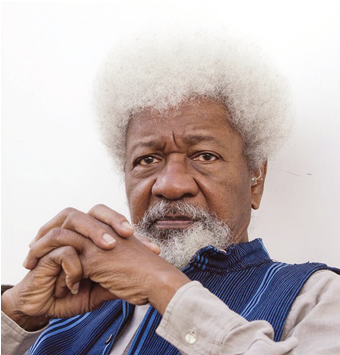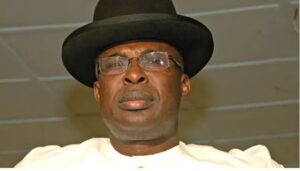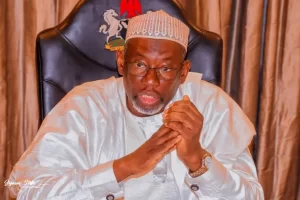
Nobel Laureate and globally acclaimed playwright, Professor Wole Soyinka, has revealed that the United States government recently revoked his entry visa permanently.
Speaking during a media parley held at Freedom Park, Lagos, on Tuesday, the literary icon explained that the decision followed his refusal to honour an invitation for a visa revalidation interview requested by the U.S. Consulate.
The octogenarian writer, known for his outspoken views on politics and global justice, disclosed that he was informed via a letter dated October 23, 2025, that his B1/B2 visa had been officially marked for cancellation.
According to Soyinka, he declined the request for a reinterview on principle, stressing that he saw no need to assist in what he termed an “unnecessary bureaucratic ritual.”
“If they wish to cancel it, that is their business,” Soyinka declared. “I will not go there to help them do it.”
The playwright, however, maintained that he bore no ill will towards the U.S., stating that he would continue to welcome Americans to his home in Nigeria.
“I will continue to receive any American who has legitimate business with me,” he affirmed.
Soyinka traced the development to his symbolic act years earlier when he tore his U.S. green card shortly after former President Donald Trump assumed office. He described that action as a personal protest against what he considered divisive and discriminatory policies at the time.
The Nobel Laureate narrated two previous encounters with American authorities, both of which he described as harmless misunderstandings.
He recounted how, years ago, he was fined 25 dollars at a U.S. airport for carrying undeclared chilli peppers in his pocket—a mistake he said stemmed from his habit of using spicy food to keep warm during winter.
In another incident in the 1970s, Soyinka said he confronted a U.S. immigration officer at Chicago Airport over a racist comment, leading to a brief scuffle that was later resolved through the intervention of the late Chief Emeka Anyaoku, who went on to become Commonwealth Secretary-General.
Reflecting on both experiences, Soyinka said: “Those incidents were nothing more than misunderstandings. They do not, in any way, amount to a criminal record.”
He noted that his relationship with the United States had been cordial for decades until the political atmosphere changed during Trump’s administration.
Soyinka concluded by urging people to resist injustice and discrimination wherever they occur.
“Silence in the face of prejudice,” he warned, “is as dangerous as the act itself.”







